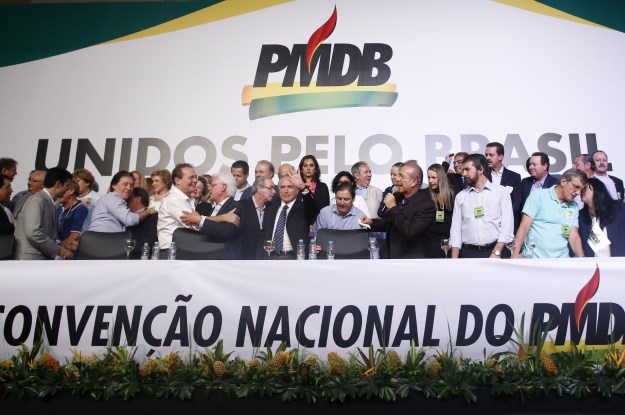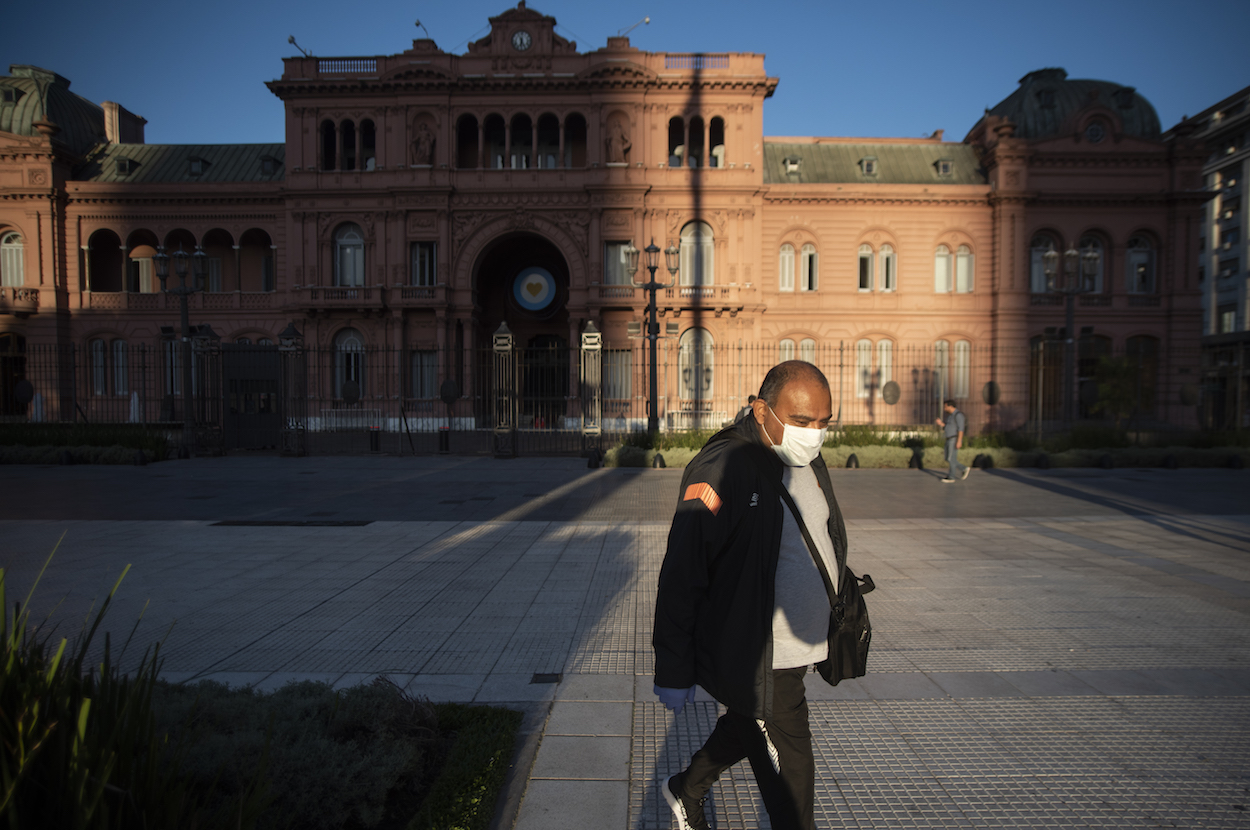Sign up here to get This Week in Latin America delivered to your inbox every Monday.
PMDB Decision on Rousseff: It is considered “inevitable” that Brazil’s largest political party, the PMDB, will on Tuesday formally break with the government and support the impeachment of President Dilma Rousseff. One party leader tweeted “On Tuesday the 29th, the party will decide to break away.” The decision would drastically lower Rousseff’s chances of political survival, and could lead to the resignation of up to seven PMDB ministers, including the influential Mines and Energy Minister Eduardo Braga. In another potential blow to the ruling Workers’ Party, the Supreme Court will vote as soon as Wednesday on whether former President Luiz Inácio Lula da Silva will be allowed to become Rousseff’s chief of staff, an appointment widely seen as an effort to shield him from arrest in the huge Lava Jato corruption scandal.
Protests in Colombia: Supporters of former President Álvaro Uribe will march in opposition to Colombia’s peace process Saturday, just over a week after a deadline for the government to reach a deal with FARC rebels passed without a resolution. Uribe has been a vocal critic of his successor and erstwhile protégé, President Juan Manuel Santos, arguing that his peace process represents a capitulation to the rebels. Santos is feeling pressure from other corners as well: A national strike on March 17 and union protests last week both left Bogotá at a standstill. Controversy over the FARC’s armed political activities, a slowdown in the economy and a series of scandals in the country’s energy sector have sapped Santos’ public support. Still, the government says it will press on with negotiations, and that they expect a final peace deal later this year.
Bolivarian IDs: On April 1, Venezuela’s President Nicolás Maduro plans to issue a “Bolivarian card” for those loyal to his United Socialist Party of Venezuela. The electronic card will let followers know what to do in case they are “hunted” and will reportedly be capable of receiving instructions in real time. Maduro also recently began issuing new “socialist cards” providing a $70 monthly allowance to party loyalists. The moves are seen as efforts by Maduro to shore up political support against a potential referendum on his rule. The opposition is already campaigning to collect the 3.9 million signatures necessary to hold a recall vote. Nearly two-thirds of Venezuelans want Maduro’s presidency to end this year, according to a recent poll.
Argentina Debt Vote: Argentina’s Senate will vote this week on measures that would allow a $4.65 billion debt deal with a group of “holdout” creditors to move forward. Argentine law currently prohibits the state from making payments to some debt holders from its defaults in 2001 and 2014. President Mauricio Macri says getting the deal finalized is essential to his plans to return Argentina to international credit markets. The lower house approved the same measures last week, thanks in part to support from opposition lawmakers and former members of former President Cristina Fernández de Kirchner’s Front for Victory party. According to a U.S. court ruling, Argentina has until April 14 to make payment.
Economy in Brief
Mexico’s electricity utility will announce the winning bids from its first-ever power auction on March 31.
Chile’s Corpbanca and Brazil’s Itaú Unibanco will finalize a merger on April 1.
Administrators say an expansion of the Panama Canal will be completed and ready for use by June 26.








